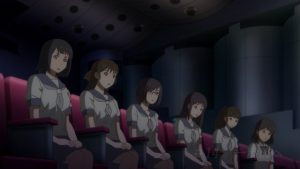 It’s been three months, but this is a pretty seamless transition for Kono Oto Tomare!. As conclusive as the Season 1 finale was, this one acts as if it were airing a week later – and there’s no reason why it shouldn’t, really. It’s very easy to get back into the swing of the series because there isn’t really anything else (well- that’s complicated) quite like it in modern anime. In terms of premise this is a show with many familiar elements, but in terms of execution it’s highly distinctive. Which is one of the reasons why I love it.
It’s been three months, but this is a pretty seamless transition for Kono Oto Tomare!. As conclusive as the Season 1 finale was, this one acts as if it were airing a week later – and there’s no reason why it shouldn’t, really. It’s very easy to get back into the swing of the series because there isn’t really anything else (well- that’s complicated) quite like it in modern anime. In terms of premise this is a show with many familiar elements, but in terms of execution it’s highly distinctive. Which is one of the reasons why I love it.
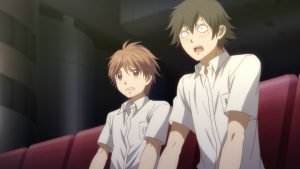 Here’s the thing about Kono Oto Tomare. While it may not subjectively (never mind objectively) be a great anime, it’s hard to match in terms of emotional honesty. It serves as a complete contrast – and antidote – to the generally cynical and ironic nature of most anime drama in the current environment. I can sit here and pick holes in it technically (and occasionally have) but the fact remains that it’s delivered more gut-punch moments for me than any show in 2019 (and this premiere had one of its own).
Here’s the thing about Kono Oto Tomare. While it may not subjectively (never mind objectively) be a great anime, it’s hard to match in terms of emotional honesty. It serves as a complete contrast – and antidote – to the generally cynical and ironic nature of most anime drama in the current environment. I can sit here and pick holes in it technically (and occasionally have) but the fact remains that it’s delivered more gut-punch moments for me than any show in 2019 (and this premiere had one of its own).
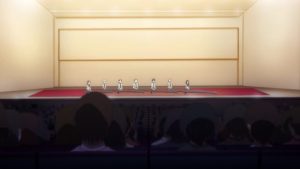 Tomare! reminds me so much of early Chihayafuru (I hate to keep comparing them, but it’s going to be even harder not to with both airing this season) – before it became bogged down in all of Suetsugu’s excesses and repetition – in its depictions of group dynamics in high school clubs. We see this theme over and over – incredibly talented individuals who find that they’re much more emotionally vulnerable when competing as teammates with generally less-talented friends. It packs power because guess what, it’s true. It’s essential to human nature. Why do you think pro golfers who thrive under the tension of individual major championships describe how withering the pressure of the Ryder Cup is?
Tomare! reminds me so much of early Chihayafuru (I hate to keep comparing them, but it’s going to be even harder not to with both airing this season) – before it became bogged down in all of Suetsugu’s excesses and repetition – in its depictions of group dynamics in high school clubs. We see this theme over and over – incredibly talented individuals who find that they’re much more emotionally vulnerable when competing as teammates with generally less-talented friends. It packs power because guess what, it’s true. It’s essential to human nature. Why do you think pro golfers who thrive under the tension of individual major championships describe how withering the pressure of the Ryder Cup is?
 Tokise, musically, is an ensemble that’s really built around two axes – the overwhelming virtuosity of Satowa and the raw magnetism of Chika. Offstage everyone is more or less equal but on, the others pretty much react to and revolve around those two. Part of the evolution of the club is the tug-of-war between those two musically, each influencing the other in ways they can’t understand. With Chika broken in this competition, it fell to the most humble of the supporting players, Kouta (and who better, really) to anchor the others and pull them back on-course. That’s the nature of being a team – the individual can transcend themselves when the moment calls for it, out of desire to support the others.
Tokise, musically, is an ensemble that’s really built around two axes – the overwhelming virtuosity of Satowa and the raw magnetism of Chika. Offstage everyone is more or less equal but on, the others pretty much react to and revolve around those two. Part of the evolution of the club is the tug-of-war between those two musically, each influencing the other in ways they can’t understand. With Chika broken in this competition, it fell to the most humble of the supporting players, Kouta (and who better, really) to anchor the others and pull them back on-course. That’s the nature of being a team – the individual can transcend themselves when the moment calls for it, out of desire to support the others.
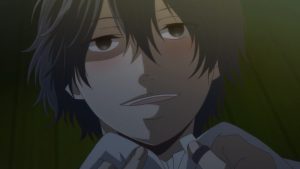 I was glad to see (well, read) that Tokise received no special award or prize for their brave but flawed performance. With as many mistakes as they made before Kouta-kun stepped in, they’d never win or place in a major competition. Their results serve as a catalyst for them (more on that shortly) but the other results are the more interesting. There are actually co-winners – Meiryou is one of course (under Ousuke Kiryuu they’re the steady standouts of the koto world). The surprise is the other, Hakuto. Not only do they upset Himseaka (which I won’t lie, made me smile) – and defeat Tokise of course – for the Kanagawa award, they share the top prize with Meiryou. Mio’s obsessive interest in Chika’s playing reflects a growing connection between the biggest mystery school and mystery personality in KoT and the school and characters at the heart of the story.
I was glad to see (well, read) that Tokise received no special award or prize for their brave but flawed performance. With as many mistakes as they made before Kouta-kun stepped in, they’d never win or place in a major competition. Their results serve as a catalyst for them (more on that shortly) but the other results are the more interesting. There are actually co-winners – Meiryou is one of course (under Ousuke Kiryuu they’re the steady standouts of the koto world). The surprise is the other, Hakuto. Not only do they upset Himseaka (which I won’t lie, made me smile) – and defeat Tokise of course – for the Kanagawa award, they share the top prize with Meiryou. Mio’s obsessive interest in Chika’s playing reflects a growing connection between the biggest mystery school and mystery personality in KoT and the school and characters at the heart of the story.
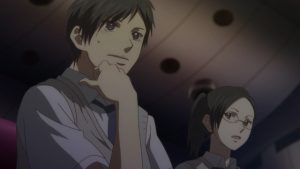 There’s plenty of room for self-blame in the aftermath for Tokise. After he explodes the diarrhea story (knowing there was no way to hide Chika’s injury), Takinami-sensei peddles a more convincing lie – that Chika punched a wall in the bathroom and injured his hand. Do the others believe it? Hard to say. Takezou and Satowa each know the truth of course, and each blame themselves – as does Chika for not playing better even hurt – and I think Hiro knows the truth in her gut, too (which means she too blames herself). For once it’s not Kouta tortured by self-doubt after a performance, and that can only be invaluable for his fragile self-confidence.
There’s plenty of room for self-blame in the aftermath for Tokise. After he explodes the diarrhea story (knowing there was no way to hide Chika’s injury), Takinami-sensei peddles a more convincing lie – that Chika punched a wall in the bathroom and injured his hand. Do the others believe it? Hard to say. Takezou and Satowa each know the truth of course, and each blame themselves – as does Chika for not playing better even hurt – and I think Hiro knows the truth in her gut, too (which means she too blames herself). For once it’s not Kouta tortured by self-doubt after a performance, and that can only be invaluable for his fragile self-confidence.
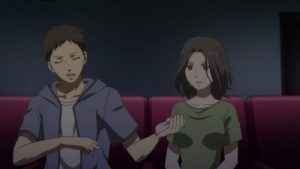 As is often the case with Kono Oto Tomare, it’s Suzu-chan who’s at the heart of the emotional climax of the arc here. Takezou does his best, bless him, to soften the blow for his teammates but he feels it too deeply to be convincing. That Takinami-sensei steps up here is a very crucial moment for his character and indeed, Tokise. For this man for whom commitment is the ultimate danger zone, to offer praise and hope to this wounded crew at this moment is his act of surrender. After having seen the courage they – led by Kouta – showed at their darkest moment, Suzu-chan seems to have admitted that he owes it not just to the kids but himself to push his chips into the pot. How can three little words – “I liked it” – carry so much weight? That’s Kono Oto Tomare.
As is often the case with Kono Oto Tomare, it’s Suzu-chan who’s at the heart of the emotional climax of the arc here. Takezou does his best, bless him, to soften the blow for his teammates but he feels it too deeply to be convincing. That Takinami-sensei steps up here is a very crucial moment for his character and indeed, Tokise. For this man for whom commitment is the ultimate danger zone, to offer praise and hope to this wounded crew at this moment is his act of surrender. After having seen the courage they – led by Kouta – showed at their darkest moment, Suzu-chan seems to have admitted that he owes it not just to the kids but himself to push his chips into the pot. How can three little words – “I liked it” – carry so much weight? That’s Kono Oto Tomare.
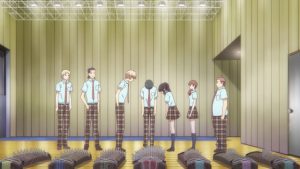 Kono Oto Tomare is definitely one of those series where the whole is greater than the sum of the parts. There are niggles and flaws to be sure, but when you add it all up at the end the impact is far greater than it has any right to be. I think its transparency is the key to that, a quality than transcends those flaws and renders them relatively unimportant in the big picture. Even with another cour to follow, it strikes me just how little of the full story this anime is going to be able to adapt. That saddens me, but I’m heartened that it’s at least giving a taste of what makes this series the gem that it is.
Kono Oto Tomare is definitely one of those series where the whole is greater than the sum of the parts. There are niggles and flaws to be sure, but when you add it all up at the end the impact is far greater than it has any right to be. I think its transparency is the key to that, a quality than transcends those flaws and renders them relatively unimportant in the big picture. Even with another cour to follow, it strikes me just how little of the full story this anime is going to be able to adapt. That saddens me, but I’m heartened that it’s at least giving a taste of what makes this series the gem that it is.
OP: “Harmony” by Shouta Aoi


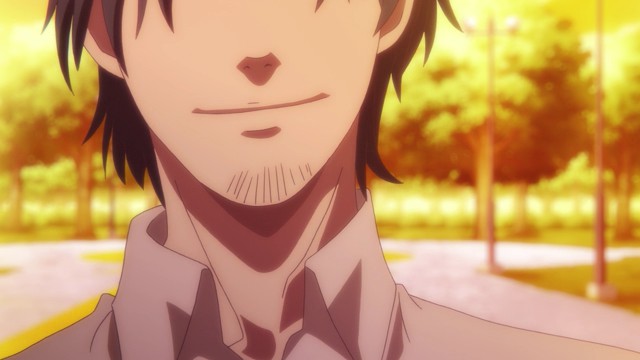
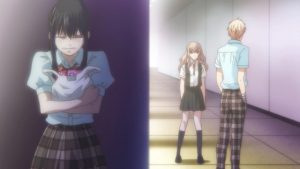

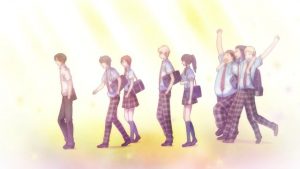
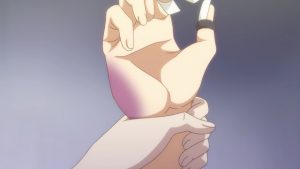

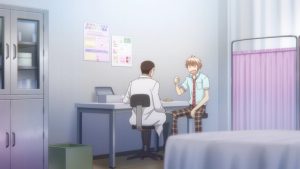
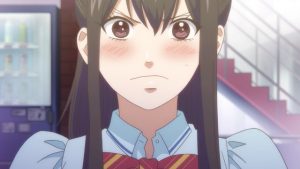

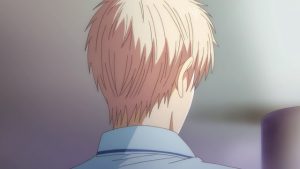
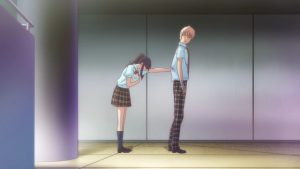


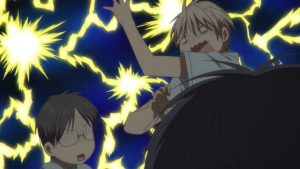
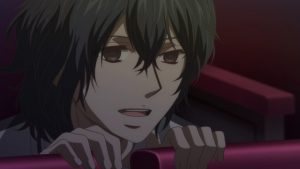
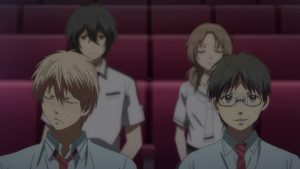
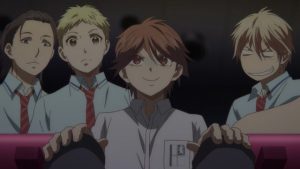


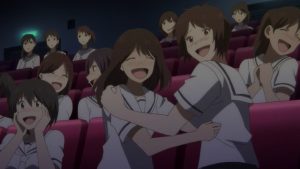

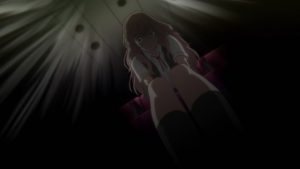


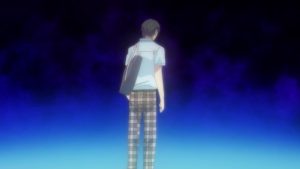


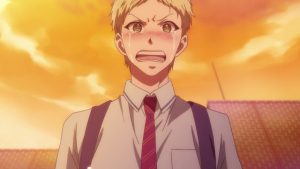
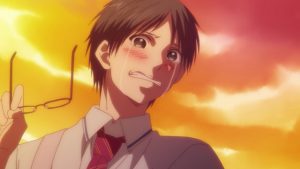

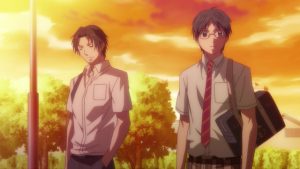

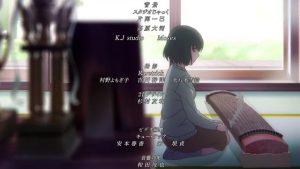



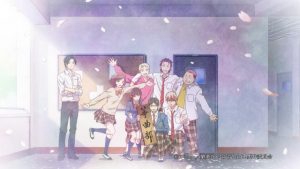

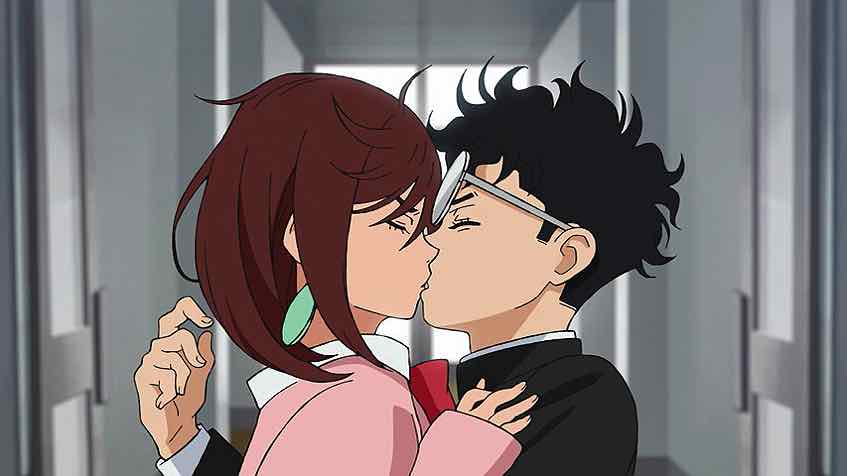
leongsh
October 6, 2019 at 5:33 pmI know I am going to get criticised for this view but it needs to be said that this show has more heart and emotional honesty than Fruits Basket. It is earnest in building up the story that fleshes out and develops the characters. It has clarity in its approach and knows how to get to emotional points without blunt forceful manipulative melodrama.
Guardian Enzo
October 6, 2019 at 6:18 pmYou certainly won’t get slammed by me – I agree.
Kyrukk
October 6, 2019 at 6:35 pmI can’t really say that KOT is devoid of blunt melodrama but I think the difference is that unlike in other innumerable shows, it’s not mired in it for too long, and the resolutions often achieve a unique emotional satisfaction. Like the scene from this episode where in the space of a few minutes, Kazusa tears down Tokise’s performance, Hozuki’s self-doubt starts to creep up again, Kudou immediately blows all that away by expressing how he genuinely feels about her music (while she’s conveniently hiding away in earshot), we see the deeper reason for Kazusa’s harsh reaction, and Kudou & Hozuki become a little closer to one another. This sort of thing would probably be the basis of an episode or even an entire dramatic arc in a different anime, but here, it’s only the second biggest moment of a larger whole.
Guardian Enzo
October 6, 2019 at 6:59 pmAs I noted in S1, “never a dull moment” could be this series’ mantra. There’s always a lot happening in terms of character development, not least because there are so many characters that get developed.